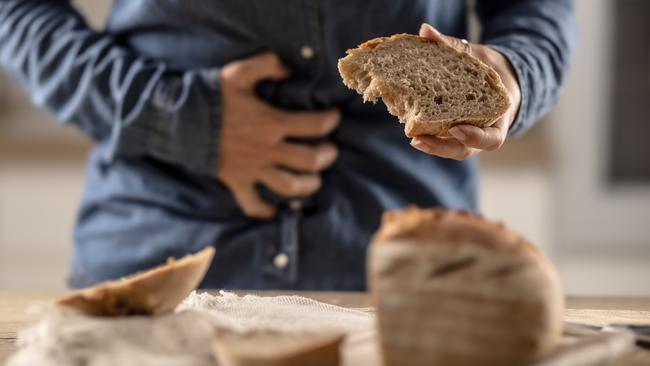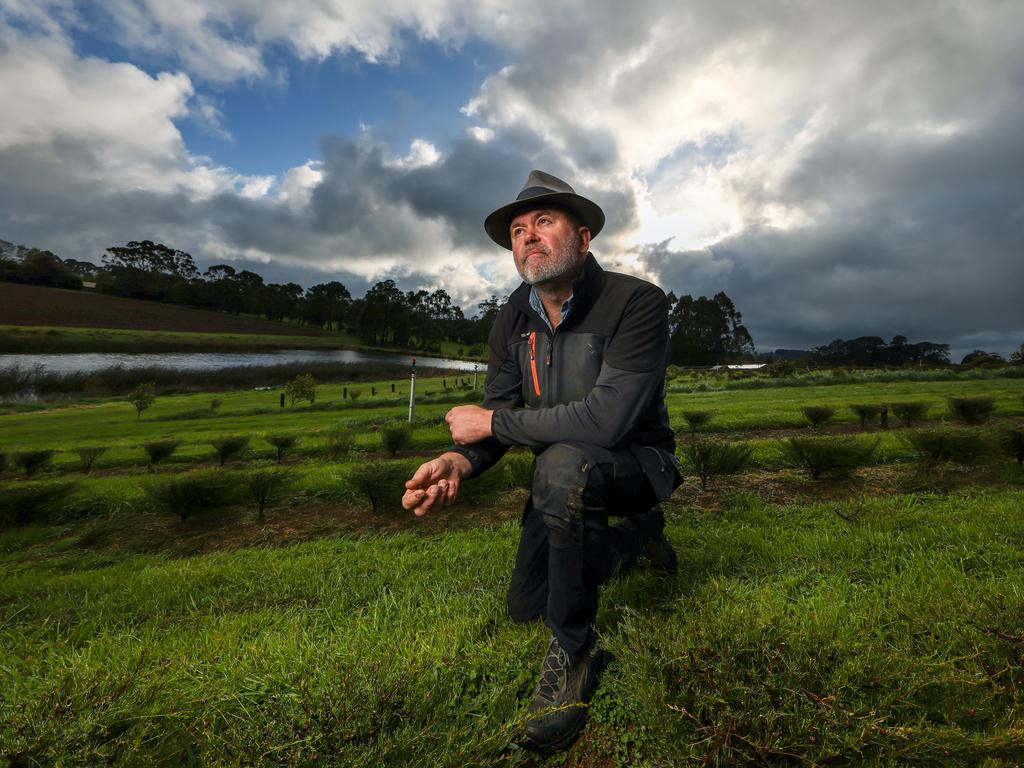Study offers hope for people with most severe form of coeliac disease
Coeliac disease cases defying scientific explanation or treatment have been demystified using an adapted form of cancer science, changing the prospects for patients.

A subset of coeliac disease patients whose symptoms persist despite cutting gluten from their diet are the subject of a new study that has brought the prospect of treatment onto the horizon.
Research led by the Garvan Institute and UNSW has produced a new image of the immune effects of coeliac disease, pinpointing mutated gut cells that cause persistent intestinal inflammation, regardless of how studiously those affected restrict their diet.
Coeliac is a chronic auto-immune disease that causes the body to attack the small intestine after consuming the protein gluten. It affects an estimated 1.4 per cent of the world’s population and there are no proven treatments.
For the vast majority of people, excising gluten is enough to prevent symptoms, but for the 1 per cent of patients with refractory coeliac disease, symptoms persist despite strict dietary control.
Refractory coeliac disease in turn has two varieties: Type 2 comes from abnormal immune cells that develop into lymphoma, while Type 1’s cause was unknown and became the subject of the Garvan study.
Its only treatment was broad immunosuppression, causing wider side effects. By isolating the mutated cells that cause Type 1 refractory coeliac disease, future treatments could be made more precise.
Retired picture framer Mark Trounce, 62, discovered his coeliac late in life and was unfortunate enough to develop the most severe form, shedding weight uncontrollably until he was diagnosed in 2022 and prescribed steroids.
“I had been gradually not feeling that great. I’ve suffered a lot of fatigue throughout my working life. I put that down to working too hard, working long hours,” Mr Trounce said. “But then it got to a point where it was quite noticeable … I was always feeling quite unwell after eating certain foods, then from there I started losing weight.
“I lost 12kg, and I lost the last 6kg of that rather quickly.
“I’d had a lot of gruesome symptoms getting closer to the diagnosis … and when the doctor calls you a quarter past seven at night, you know there’s a bit of a problem.”
Despite pulling all gluten from his diet, Mr Trounce’s abdominal pain and associated symptoms persisted. His doctors suspected he had been suffering undiagnosed for decades.
“I went on a gluten-free diet and put weight back on because I was so hungry all the time. I would just eat, and eat, and eat, and eat. I think my body said I better eat because I’d been starving for a number of years,” he said.
“My partner went through the pantry, and 80 per cent of the food she pushed aside and said “you can’t eat that”.

Garvan Institute immunogenomics head Chris Goodnow said physical symptoms were compounded by the emotional distress and self-doubt of patients who could not understand why diet changes had no pay-off in their quality of life.
“It’s frustrating for someone with a chronic disease when they’re doing everything you’re supposed to do, and neither they nor their doctor can figure out why it’s not working,” Professor Goodnow said.
“People start to have self-doubts … and they’re worrying the doctor thinks that they’re sneaking gluten on the side, all those psychological things bring people down terribly.
“Coeliac disease, in many ways, is a window into so many auto-immune diseases. For most auto-immune diseases, we don’t know what triggers them and what fuels them. Whereas, for coeliac we know the external trigger really well.
“Not only does this tell us something about the more serious end of coeliac disease, but it actually tells us about what is very likely to be going on in the more serious end of a lot of auto-immune diseases.”
Their findings hinged on biopsy samples of gut tissue, using a technique generally reserved for cancer science that researchers specifically retrofitted to meet the needs of their study. It showed mutated immune cells appeared in 70 per cent of samples from type 1 refractory coeliac patients.

“This research is a great example of how new genomic technologies can uncover hidden disease mechanisms. By applying these state-of-the-art tools to coeliac disease, we are beginning to solve longstanding medical puzzles and move towards more precise treatments,” Professor Goodnow said.
Once mutated, these cells cause inflammation in the intestine and cause gut pain, malnutrition and diarrhoea.
Results were published in the peer-reviewed journal Science Translational Medicine on Thursday.
“This is the first time we’ve been able to pinpoint a molecular signature for type 1 refractory coeliac disease,” lead researcher Manu Singh said.
“We discovered that some patients with refractory disease have an accumulation of immune cells with genetic mutations, which may develop during periods of chronic inflammation, such as earlier gluten exposure.
“What’s interesting is that these mutations share similarities with those we see in certain lymphomas – appearing to give the cells a growth and survival advantage. This is a potential explanation for why they persist even after a patient eliminates gluten from their diet.”
Isolating the cellular cause of the coeliac variety opened the door to personalising drug treatments for the condition by matching existing medicines that target the same pathways in the body to patients.






To join the conversation, please log in. Don't have an account? Register
Join the conversation, you are commenting as Logout